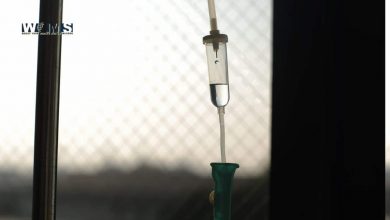Maximizing Efficiency in Your Medical Practice

As a medical professional, your primary goal is to provide the best care for your patients. However, delivering high-quality patient care requires an efficient and streamlined medical practice. With the rapid evolution of technology and the growing need for organizational skills, you may be wondering how to improve your medical practice’s efficiency while staying focused on patient care. In this blog post, we will explore modern strategies, technology, and organizational skills to achieve this goal.
Optimize the Patient Workflow
An efficient patient workflow is critical to maximizing your medical practice’s productivity. Evaluate your current workflow and identify any bottlenecks or areas where improvements can be made. This could involve streamlining check-in procedures, minimizing wait times for patients, or implementing an effective triage system. By doing so, patients can be seen more quickly, and your staff can work seamlessly together, resulting in better patient care.
Another way to optimize your patient workflow is by using a patient engagement platform. This type of platform allows you to efficiently manage appointments, streamline communication with patients, and monitor patient satisfaction. By implementing such a platform, you can significantly improve the overall efficiency of your medical practice and provide enhanced patient care.
Invest in Staff Training and Development
The success of your medical practice relies heavily on the abilities and expertise of your staff. Investing in staff training and professional development will not only keep your team up-to-date with the latest in the field but also motivate them to work efficiently and cohesively. Adequately trained staff will be more adept at using new technologies and will be able to provide better patient care.
Embrace Electronic Health Records
One of the key ways to ensure a smooth flow of information in your medical practice is by adopting Electronic Health Records (EHRs). EHRs facilitate better communication between healthcare providers and more efficient documentation, thereby improving overall patient care. Additionally, EHRs enable doctors and nurses to access patient information quickly, reducing the time spent searching for data.
Encourage Collaboration and Communication
In medical practice, good communication and collaboration are essential to ensure that all staff members work as a cohesive unit. Foster a work environment that encourages open communication and teamwork. This will result in a more efficient workflow and a practice that runs harmoniously.
Streamline Appointment Scheduling
A well-organized appointment scheduling system is crucial for improving the efficiency of your medical practice. With an effective scheduling system in place, you can reduce the time spent on administrative tasks, while ensuring that patients receive prompt care. Consider using software that can automate appointment reminders and allow patients to book appointments online, further reducing the chances of human error and miscommunication.
Create a Robust Follow-up System
Effective follow-up systems are essential to maintaining patient satisfaction and ensuring proper care. Implement a process for scheduling follow-up appointments and providing timely information, such as test results, to patients. By establishing a reliable follow-up system, your medical practice can operate more efficiently while reducing the chances of missed appointments, miscommunications, or delayed patient care.
Leverage Telemedicine
Telemedicine has made significant strides in recent years, and it’s a great way to increase your practice’s efficiency. By incorporating telemedicine services, you can provide care to more patients without increasing your physical capacity or staff numbers. Moreover, telemedicine can decrease appointment no-shows and wait times, improving patient satisfaction.
Implement Lean Health Care Principles
Lean healthcare practices foster the elimination of waste from medical processes, focusing on providing value from the patient’s perspective. The principles of lean healthcare include understanding what is important to the patients, identifying and eliminating waste, achieving continuous improvement, and empowering staff to engage in problem-solving. By implementing these principles, you can significantly improve the efficiency of your medical practice while ensuring high-quality patient care.
Optimize Your Billing Processes
An efficient billing system is vital to the financial health of your medical practice. Streamlining billing processes through automation and adopting best practices can reduce errors, save time, and improve cash flow. Consider implementing electronic billing and claims submission to minimize paper-based work and human error. Efficient billing also contributes to a better patient experience, as it ensures timely and accurate billing information.
Identify Areas for Improvement
Data-driven decision-making can greatly benefit your medical practice. Using analytics to assess the performance of your practice can help pinpoint areas that need improvement and drive corrective actions to enhance efficiency. Analyzing data related to patient wait times, appointment scheduling, and resource utilization can provide valuable insights and facilitate informed decision-making that leads to a more streamlined practice. Maximizing efficiency in your medical practice is not a one-size-fits-all solution. Each practice is unique, and the best ways to increase efficiency will depend on the specific needs of your practice. By exploring the strategies and technologies mentioned above and tailoring them to fit your unique situation, you can create a more efficient, streamlined practice that provides exceptional care to your patients.




